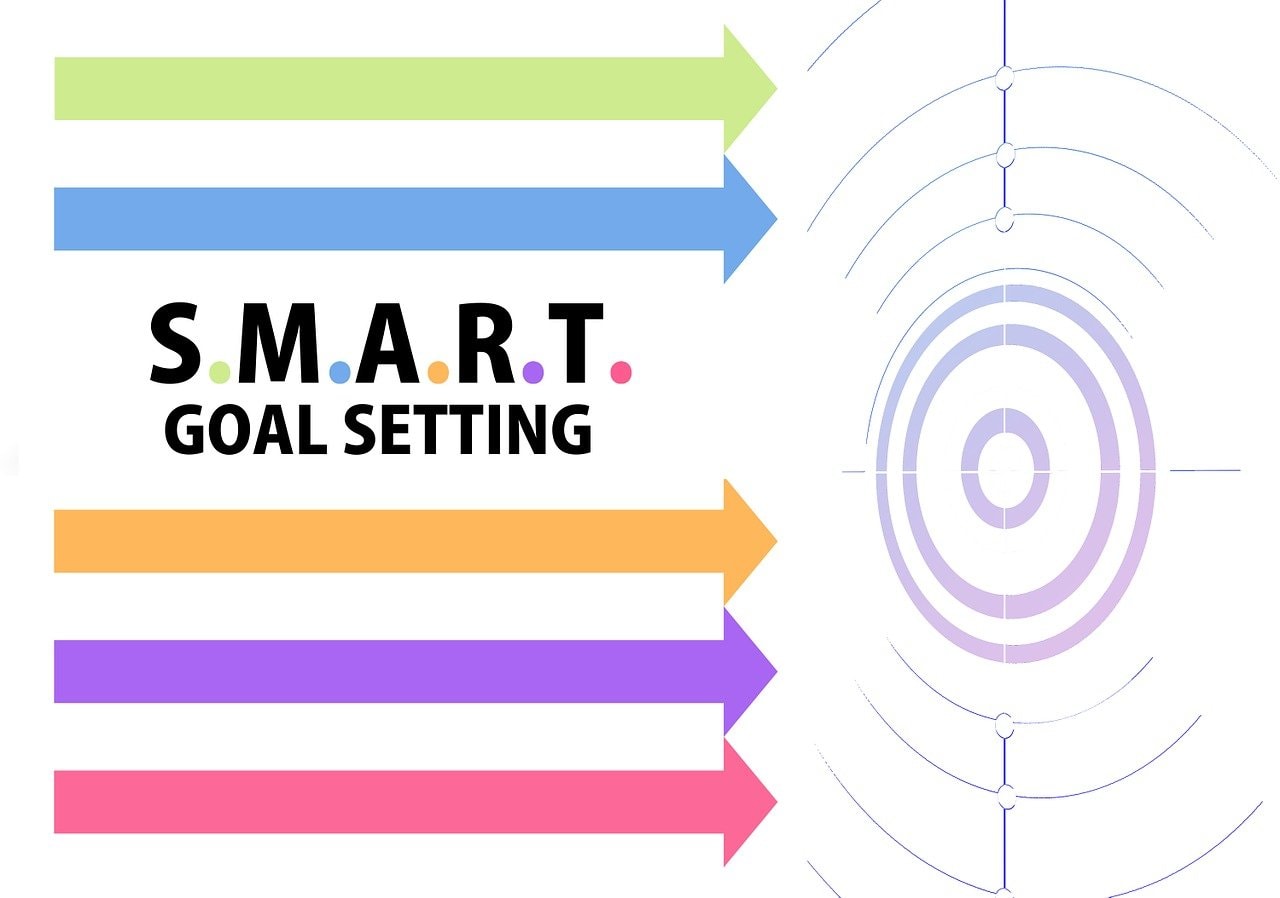
What are your career goals? What do you hope to accomplish in your current role? What long-term professional goals do you have?
Are you ready to take your professional growth to the next level in 2025? Setting clear and achievable work goals is crucial for success and personal fulfilment in the workplace. In this article, we will present you with 15 examples of professional goals and aspirations to consider for the upcoming year, as well as the actionable steps you need to take to achieve them.
What Are Professional Goals?
Professional goals, or career goals, are professional development targets that guide your career. These goals can be both short-term or long-term, and they motivate you pursue personal and professional growth that will bring you closer to a promotion or a well-paying job in a big firm.
The right professional goals help you land ideal jobs that will steer you towards job satisfaction and slingshot you career forward. Many people aspire to grow professionally because it increases their earnings and improves their overall life satisfaction.
Goal setting is a skill in and of itself. When you define professional goals for yourself, you must remember that your professional life shouldn’t spill into your personal life if you want to achieve an ideal work life balance. Remember, career growth can only be achieved through a continuous learning process, and you shouldn’t sacrifice personal values for the sake of short-term gains.
Examples of Career Goals
When you set goals for your professional development, you need to remember that short-term goals connect to long-term ones. In order to make longer-term goals more digestible, you need to set shorter-term professional metrics that you need to tackle first.
This way, you can celebrate small wins, which will motivate you to continue your climb up the corporate ladder. Let’s explore some examples of career aspirations and see how short term goals tie into long term success.

Examples of Professional Goals For The Short Term
1. Improving networking and presentation skills
The modern working environment requires lots of public speaking, presentations, and networking. With so many companies moving most of their operations online, you must learn to make use of modern communication tools and solutions to build your professional network and become a thought leader.
Learn how to bring your presentations to life with creative designs and layouts. Research and use the best communication platforms to engage with your clients, colleagues, and employer and stand out from the competition. Improve your storytelling abilities, social skills, and strive to become an expert in hosting industry conferences using the various tools available.
2. Learning new skills
The world is ever-changing, and demand for extensive professional knowledge is always on the rise. You can approach this by several means. For example, you can attend industry events to establish professional connections to build soft skills, build a strong professional network with industry leaders on LinkedIn to monitor industry trends, and attain professional certificates relevant to your industry to raise your hard skills.
Taking online courses to sharpen your skills is a sure-fire way to put your career trajectory in a favorable position. Dozens of platforms offer both free and paid courses, including Udemy and Coursera. Engaging in continuous learning is a great way to show your professional aspirations to your employer and that you are willing to not only improve your skill set but also the company’s performance.
3. Becoming better at time management
Are you always late for meetings? Do you often find yourself overworking? Do you have little time to spend with your family? Your time management skills may require some sharpening. Now is the time to get better at time management.
Find useful information on how to accomplish your tasks within a specific time frame and learn when to stop working to attend to personal stuff. Remote workers particularly have issues when it comes to ‘closing shop’ and calling it a day.
To improve your time management and project management skills, try using time tracking app like Traqq. This tool is designed to make managing your time less stressful. Traqq features automated timesheets and detailed reports to help you analyze your performance over a period of time, and you can compare your productivity with your earnings. This way, you will be able to tell whether or not you are making progress in your career advancement strategy.

4. Gaining experience by working as an intern at a reputable company
We all know that money makes the world go around. Even so, if you’re aiming for career growth, you must be willing to see what you can or cannot gain financially when you’re just starting out. Many successful people started as unpaid interns in their industries.
Today, we can’t imagine Steven Spielberg as someone who would do coffee runs for his film crew. However, he wouldn’t be where he is now in the professional world without starting at the bottom of the totem pole as an intern.
Try looking for co-op or apprenticeship opportunities in big companies to gain work experience. If you work hard enough, you may even secure a permanent position with the organization.
5. Researching how other departments work
To build a wide understanding of how different departments within the company are run. Take a few days to shadow a team member in each department over the next few months. This way, you will learn what goes on in every internal professional group, which challenges they face, and how they contribute to the company.
6. Establishing a personal brand
“My goal is to develop a name for myself and establish a personal brand in my industry. I plan to build a website by the end of September (time-bound, specific) and hope to have gained at least 150 followers within one month of going live (attainable, measurable).”
This is one good example of an attainable goal. Setting such professional goals will push you to work hard to create relevant content that will keep your followers engaged and attract new audiences. Establishing a personal brand is a way to gain exposure for your expertise, and it shows your uniqueness, which in turn helps to draw clients in.
7. Building a Personal Website or Portfolio
One of the most popular and effective ways to highlight your professionalism is to build your own website. As opposed to other means of showcasing your achievements, projects, and skills, a simple, yet appealing website is sure to grab a client’s attention.
With a myriad of drag-and-drop development tools available to help you, you don’t need your site to be complicated. Try to keep it simple by using a straightforward design, and don’t forget to add an “About” section, and share your contact information. When adding content, remember that your portfolio should represent your best work.
If you’re in a field that involves creativity, adding impactful visuals to your site can leave a strong impression. Once the site is up and running, it’s important to maintain the portfolio with your most recent projects to demonstrate your growth and stay relevant in your industry.
8. Achieve work life balance
A good sign that you critically need to improve your work-life balance is if you think professional growth requires constant overworking. In reality, you need to keep a good balance between work and personal life to be able to work effectively and not feel stressed when you’re off the clock.
The good news is that even small adjustments can make a huge difference. If you’re already looking into how to improve this balance, that means you’ve already taken the first step.
The next step is to take initiative. Start by establishing firm boundaries on where your professional life ends and where your personal life begins: don’t check your emails outside work hours, and take proper breaks instead of eating lunch at your desk.
Approach the planning of your personal time as you would a professional meeting, and try to completely “log off” at the end of the day. A balanced approach is not about working less or more – the ultimate goal is to make sure your work doesn’t take over everything else.
Examples of Professional Goals For The Long Term
9. Expand your skill set with an advanced degree or certificate
One of your career goals should be to earn a professional degree or certificate in your current field (if that is the career path you want to pursue). Many institutions offer programs that accommodate busy work schedules, like evening classes.

Some companies offer career development programs to employees. Inquire about them from the human resource manager and grab every educational opportunity that comes your way so you can improve your current skills and acquire new expertise. Remember that you should learn new skills and advance your education whenever you get the chance.
10. Securing a leadership role
Some people are natural leaders who can motivate teams to become more efficient and productive. If you think you’re one of them, then it should be your long-term goal to secure a managerial position.
Even so, you must know that becoming a great leader takes so much more than telling others what to do. Here are some key qualities you need to prove that you’re the best fit to take on leadership responsibilities:
- You have excellent problem solving skills and excel at thought leadership.
- You acknowledge your mistakes and share your success with your team.
- You have the emotional intelligence to accept that in certain subjects, someone else may know more than you do.
- No matter what role you’re in, you work harder than everyone else.
- As changes arise, you’re always ready to adapt and take on new challenges.
- You have the collaboration skills to avoid micromanagement and you know how to delegate tasks effectively.
- You have solid communication skills and know how to provide constructive feedback.
11. Becoming a mentor
Most successful industry professionals owe their success to quality mentors, to whom they looked up to for guidance, advice, and support. If you are eyeing a promotion at your company, demonstrating mentorship skills will take you a step closer to it.
This will show your employer that you want to set good examples and are willing to help young members to develop strong leadership skills and plan for their futures. Start taking mentorship classes that are relevant to your job position. Specify how long the leadership training classes should take and how you plan to integrate them into your daily schedule.
12. Changing your career advancement path
It is important to work in a position that you find fulfilling. Otherwise, you will not be motivated at work, you won’t be able to connect well with workmates, and you won’t be productive.
Don’t settle into a life of mediocrity. Staying in the same job for years when you’re not making any progress career-wise or financially is detrimental. Instead, switch careers and choose one that you feel passionate about and that pays well.
Consider moving to a more challenging role in a different company. For example, you can set a goal to get a remote software engineer job that pays at least $50,000 with a leading company within the next three months. Start writing resumes and apply for at least 15 positions every day.
You can quickly prepare documents to apply for the position by using a photography contract template or ready-to-use templates for other jobs.
13. Achieving job satisfaction through getting hired by your dream company
There must be that company that you’ve always wanted to work for, but you are either too intimidated or inexperienced to apply. Set a goal to try your luck. Even if you don’t get the job the first time, don’t give up. Gain new experience and skills that will boost your resume and try again.
Make it your goal to work on improving yourself to get better at what you do so that even if your dream to work in that company doesn’t materialize, you will have become a better version of yourself and will be able to confidently work at an equally prestigious company.
14. Winning an industry award
It’s true that every person has their own definition of success. However, if there’s anything that can attest to someone’s achievements, it is an industry award. If you’re working in the literature or journalism industry, aiming for a Pulitzer Prize would be a good goal.
Even small business owners can gain recognition by winning a SCORE award. In nearly every industry, highly reputable awards are given to deserving people.
15. Becoming a business owner
Gear up and start researching the business ideas that you have in mind. You just need to identify your niche and create an online store.
Set time-bound goals. For example, your goal might be as follows: By the end of this month (attainable), I will have registered my company, opened a website, and applied for the necessary documentation (measurable, specific).
How to Answer the Interview Question “What Are Your Professional Goals?”

Have you ever been caught off-guard by this job interview question? If you’re asked this question, you must formulate an answer that will show your intention to be loyal to the company.
The interviewer likely asked what your professional goals are because they want to know if you plan to stay with them for a while. They’re also gauging if you’re going to leave if a better opportunity comes up. This interview question reveals if their company is included in your long-term plans or visions.
Your best bet is to think of an answer with the company in mind. Think of goals that will relate to the company you’re planning to work for. You can even divide them into short-term and long-term goals—just like the ones we shared in this article.
Mistakes to Avoid When Answering “What Are Your Career Goals?”
When talking about your career and work goals, try not to mention goals that relate to bonuses, earnings, perks, or raises. Otherwise, you’d look like you’re after the money and not the work you want to get hired to do.
Another mistake you should avoid is getting too deep into the weeds. You’d want to discuss clear goals, but you shouldn’t share too much information. For instance, if you’re aiming for a certain position but you’re not interviewing for that role, don’t discuss that with the interviewer.
How Do You Describe Your Career Goals?
At this point, you might ask, “How do I write my career goals?” Well, to begin with, you need to come up with a clear and specific statement for your professional goals for work. Here are some tips for creating a compelling list of professional goals:
Consider What You Are Passionate About
Without understanding where your passion lies, you will not realize what your work goals are. Focus on the things or activities that bring you joy. Then, think about the options that you can use to turn your passion into a career.
If you don’t know what you’re passionate about, don’t worry. You can dip your toes into freelancing projects or volunteering opportunities. Doing so will help you decide what career path you want to take.
Perform Due Diligence
You’re likely to ensure the success of your career goal statement when you know what to anticipate. Keep in mind that every industry is different. You need to learn about what’s required for the role you’re aiming for.
Let’s say you want to become a project manager. Before you even attempt to set professional goals, you need to take courses. For instance, there are plenty of project management methodologies you can learn, including Scrum, Agile, Kanban, and PRISM, among others. So, it pays to educate yourself before you define your professional goals.
Ask the Important Questions
When you want to write a career goal statement, you need to ask yourself the following questions:
- What are my career aspirations?
- What principles align with my core values?
- What type of person do I want to be in the workplace?
- How will my career and personal goals align?
- What is my vision for my future?
- What are the things that led me to realize my vision?
- What projects or tasks do I enjoy being part of?
- What are my areas of improvement and skill gaps?
- Why am I choosing this career path?
When writing your career goal statement, look at your answers to these questions. You will see which ones are aligned with the realistic opportunities available to you. So, make sure you take the time to reflect when answering these questions.
Define Your SMART Goals

When you set your professional development goals, you need to ensure that they are SMART goals:
Specific – Don’t just say you want to earn more money, but say how you plan to do it. This might include learning new skills or becoming more productive.
Measurable – Is your goal measurable? Setting clear career development goals is an imperative part of achieving them. For example, you can set a specific timeframe within which you intend to have accomplished your target of completing an advanced online course.
Achievable – Setting professional goals that are realistic and action-based will make the process easier. Don’t push yourself too hard by trying to overcome obstacles that are impossible since that will only lead to disappointment.
Relevant – You will be able to accomplish your objectives if you set career goals that align with your educational background. For example, if you have a degree in marketing but you set goals to be a singer, this career development path might not match your skills, qualifications, and professional background.
Time-based – Be clear on how you plan to achieve your goals. Try breaking your career down into manageable chunks and set specific start and end dates.
Remember, when setting professional goals, you should make sure they are coherent and complement each other well if you want to improve your productivity and climb up the corporate ladder. Whether you are looking for a new job, want to try a new career, or want to improve your performance, you will need an action plan with a smart framework that will help you establish and reach your professional goals.
Write Down Your Action Plan
Once you’ve determined what your career goals are, it is time to develop a plan on how you can reach them. Think about every step you need to take to get to your target and make sure you include them in your professional goal statement. If you plan to take courses or gain experience, indicate it in your action plan.
Make Proper Adjustments
You may be confident about what you want for your career. However, along the way, your interests, circumstances, experiences, and career motivations may change. There’s a lot of room for personal growth while you’re working on your long-term objective. So, be ready to make proper adjustments whenever necessary.
How to Achieve Your Professional Development Goals
Write them down: Write down your professional performance metrics and put the notes where you can see them daily, like on your desk, to motivate yourself to work harder towards achieving your career goals each day.
Share your plans: To challenge yourself, share your career plans with your partner, friends, family, or employer – designate an “accountability partner” for yourself.
Visualize your professional development: Psychologists recommend that in order to succeed in anything you do, you must learn to visualize yourself crossing the finish line. If you want to become a CEO or business owner, start by envisioning yourself as one.
Set deadlines: You won’t achieve your goals if you work without deadlines. Deadlines will keep you on your toes, and when you finally accomplish your targets, you can reward yourself by celebrating the milestone you have reached so far.
We understand how challenging goal setting can be, especially if you’re planning your career. Even so, we’re certain that the tips we shared in this article will nudge you in the right direction.


Keep up the great work! Thank you so much for sharing a great posts.